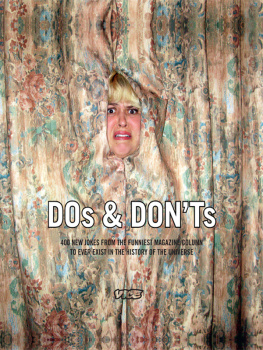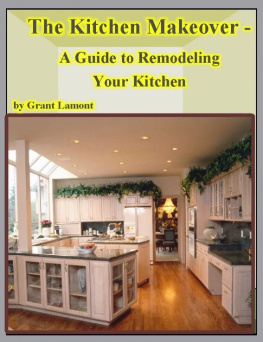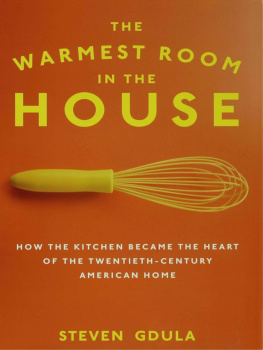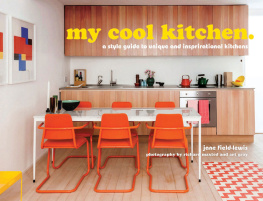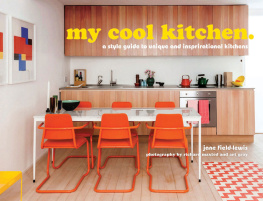This is the House
MELTON WALKED somberly into the living room and headed for the front windows, where he remained, brooding over some dark thought and twisting his hands idly behind him. His wife, Michaela, lifted her head and watched him, while the whirring of the sewing machine faded into silence. After a moment she said, "You're in my light, Bob." "Am I? Sorry," Melton murmured, and moved aside.
But he still kept his back to the room, and his fingers still moved nervously behind him. Michaela frowned, sent a slow, rather questioning glance around the room, and pushed back her chair.
"Let's have a drink," she said. "Your silhouette looks vaguely rocky. A short, strong cocktail, perhapshuh?"
"A short, strong snort of rye, I'd say," Melton expanded, brightening a trifle. "I'll fix it. Hm-m-m." He had taken a step toward the hall door, but now he paused, almost imperceptibly. Michaela remembered the refrigerator then. "I'll do it," she said, but Melton growled something and went on out, his footsteps heavy and determined.
Michaela crossed to the divan under the window and curled up on it, biting her lower lip and listening hard. As she expected, Bob was delaying opening the refrigerator. She heard the rattle of glasses, the clink of bottles, and a gurgle. The last tune Bob had had occasion to investigate the refrigerator, there had been a gasp and a string of blazing, subdued oaths. But he had refused to tell why. Remembering other incidents that had occurred in the last three days, Michaela moved her shoulders, uneasily. Not that she was cold. The house was warm, almost too warm, and that hi itself implied certain disturbing factors they had already noticed. Because the coal furnace hi the basement was working rather impossibly well.
Melton came back with two highballs. He gave one glass to Michaela and slumped into a chair near her. There was a long silence.
"O.K.," Melton said presently. "So I didn't put any ice hi the drinks."
"What of it?"
"Because there's ice today. There wasn't yesterday. But today the icetrays are full. Only it's red ice."
"Red ice," Michaela repeated. "I didn't do it."
Her husband looked at her darkly. "I made no accusations," he pointed out. "I didn't really think you cut a vein and bled into the icetrays, simply to worry me. I'm just saying that the ice is red now."
"That's easily solved. We'll drink the rye straight. Where's the bottle?"
Melton produced it from behind his chair. "I thought we could use several. Did you phone the agent today, Mike?"
"Yes. Nothing came of it. He got the idea we had termites."
"I wish we had. Better termites than... Well, what about the former tenant? Hadn't he been able to find out anything at all?"
"No, and he thinks we're busybodies."
"I don't care"Melton took a long swig from his glass"what he thinks. We bought this house on the understanding that it wasn'twasn't" He slowed down and stopped. Michaela exchanged a long glance with him.
Melton nodded. "Sure. That's the way it is. What can we say?"
"Harmon kept talking about electricians and plumbers. He recommended several."
"That helps a lot."
"You're a defeatist," Michaela said, "and give me another drink. Thanks. After all, we're saving coal."
"At the expense of my sanity."
"Could be you don't understand this sort of furnace."
Melton put down his glass and glared at her. "I've handled furnace accounts at the office." He worked with a New York advertising agency, which was one reason they had taken this house, half an hour from Manhattan and pleasantly isolated on the outskirts of a small Hudson River town. "I've had to find out a little about how they worked. There's a place for a draft, there's a vent where the gases go out, and there's a boiler built into the furnace. You put coal hi, and, presumably, it burns out, heats the water in the boiler, and is circulated through the house radiators. There's also a blower that doesn't work. Look. If you light a match, it burns up, doesn't it?"
"Yes. It burns up."
"But the coal doesn't," Melton said triumphantly. "Three days ago I put a couple of shovels of coal in the furnace. I've had a red bed of coals ever since. The house is warm. It shouldn't be." He reached over to an end table and scrabbled at some papers. "I even figured out how long it should have taken the coal to burn. The answer is four hours at the outside. Not three days."
"What about that automatic stoker idea?" Michaela asked. "Did you look?"
"Well, I didn't use an X-ray. But I looked. Yeah. I'll show you." He stood up, seized Michaela's hand, and
they headed for the cellar, by-passing the eccentric refrigerator.
The cellar was capacious, cement-floored, and with six-by-six vertical supporting beams here and there. In one corner, by the coal bin, was the furnace, a bulging, dirty-white object with insulated pipes sticking out of it and wandering across the beams of the ceiling. All the drafts were shut, but the hydrostatic thermometer atop the boiler read 150. Melton opened the metal door. The bed of coals glowed red; ripples of wavy heat-motion ran across its surface.
"Where's the stoker?" he asked.
"Built in," Michaela suggested, hopelessly. "It's a big furnace."
"The boiler's like a jacket. That fattens it out."
"Why not let the fire go out and start another? Maybe"
"Let it go out? I can't make it go out. I can't even shake it through the grate." He seized an iron crank and demonstrated. "The Souse is too hot, even with all the windows open. When snow sets in, I don't know what we'll do."
Michaela turned abruptly toward the stairs. Melton said, "What's the matter?"
"The doorbell."
"I didn't hear it."
On the landing, Michaela paused to look down at her husband. "No," she said reflectively, "one doesn't. Hadn't you noticed?" She made a despairing gesture and departed, leaving Melton to stare after her. Now that he thought of it, not once in the past three days had he heard the doorbell ring. Yet, he recalled now, there had been callersmostly salesmen determined to sell the new tenants insulation, paint jobs, extermination equipment, and subscriptions to magazines. Somehow it had always been Michaela who had answered the door. Melton had taken it for granted that he had been in a part of the house where it wasn't easy to hear the bell.
He scowled, at the furnace, his thin, saturnine face set in troubled lines. Very easy to say, "Ignore the matter." But you couldn't. Not even the single matter of the furnace. And there had been others. What was wrong with the house?
Superficially nothing. Certainly nothing that a prospec-
tive tenant would notice on inspection. The title search had showed no flaws; an architect had approved Melton's plan to buy the place. So they had moved in, grateful for a pied a terre after months of vain house-hunting.
Sixteen Pinehurst Drive seemed exactly what they wanted. It wasn't ultra-modern; it had a certain solid air of assurance about it. It had sat for fifteen years facing the Hudson Palisades across the river, like a prim dowager austerely gathering gray stone skirts about her. The foundation was stone; the upper storiesit was a two-story housewere wooden frame. And the layout of the rooms was ideal for their manage, Melton and Michaela and her brother Phil, who lived with them when he wasn't off on a binge, as he was, presumably, at present.
So they had moved in, the furniture had been installed, and the trouble began. Melton wished Phil were here. The guy, for all his erratic tendencies, had the ability to take things for granted; he exuded reassurance. But Phil hadn't even seen the new house yet.
He did not, therefore, know about the hall light, upstairs, which after a few experiments the Meltons had decided not to use at all. There was something about it. It altered complexions oddly, and had a quality of semi-fluorescence. Not quite that, but neither Michaela nor Melton liked to see each other in its illumination. The bulb wasn't at fault; they'd tried severalnew ones at thatand the quality of the light was unchanged.
Next page

